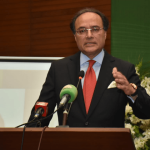India has enacted a contentious citizenship law that has drawn harsh criticism for marginalizing Muslims, a minority group whose worries have grown under the Hindu nationalist government of Prime Minister Narendra Modi.
On Monday, the law's regulations were made public. It creates a religious test for immigrants who practice any major religion other than Islam in South Asia. The rule, according to critics, is another proof that Modi's administration is attempting to turn the nation into a Hindu state and alienate the 200 million Muslims living there.
For Hindus, Parsis, Sikhs, Buddhists, Jains, and Christians who fled to Hindu-majority India from Afghanistan, Bangladesh, and Pakistan before December 31, 2014, the Citizenship Amendment Act offers a quick route to naturalization. The majority Muslim population in all three countries is barred under the legislation.
It also modifies the previous law, which forbids undocumented immigrants from obtaining Indian citizenship, and is the first instance of religious requirements for citizenship being established in India, an officially secular nation with a heterogeneous population. According to the Indian government, qualified individuals can apply online for Indian citizenship.
In the lead-up to the general election, which is set for May, one of the main electoral pledges made by Modi's ruling Bharatiya Janata Party has been the implementation of the law. The Modi administration has refuted the claim that the law is biased and supported it on the grounds that it is an act of compassion. It contends that the rule would not be applied against religious minorities and is solely intended to grant citizenship to those who are escaping persecution.
The Indian Parliament passed the law in 2019, but after violent protests in New Delhi and other cities, the Modi administration postponed putting it into effect. Days of fighting resulted in numerous fatalities. People of various faiths who believed the bill compromised India's foundation as a secular society were drawn to the 2019 statewide protests. Muslims were especially concerned that the government would isolate them by using the law in conjunction with a planned national registry of residents.
The National Register of Citizens is a component of the Modi administration's endeavor to ascertain and exclude those whom it alleges entered India unlawfully. Only the state of Assam in the northeast has used the register, but Modi's party has promised to introduce a similar citizenship verification scheme.
Human rights organization Amnesty India stated on Monday that the statute “legitimizes discrimination based on religion.” Some contend that the law ought to have protected Muslim religious minorities who have experienced discrimination in their own nations, such as the Rohingyas in Myanmar and the Ahmadis in Pakistan, if its goal is to shield persecuted minorities.
Modi's plan, according to detractors, is Hindu nationalist and threatens to undermine the secular foundation of the country, reduce room for religious minorities, especially Muslims, and bring the country closer to being a Hindu nation.
Among the more than 1.4 billion people living in India, 200 million Muslims are a sizable minority group.
Due to accusations that they eat beef or smuggle cows—an animal revered by Hindus—Hindu mobs have slaughtered scores of Muslims. Places of worship for Muslims have been set on fire, their neighborhoods have been destroyed, and Muslim businesses have been boycotted. There have been some outspoken calls for their genocide.
Critics claim that Modi's egregious silence regarding acts of violence against Muslims has given some of his most radical supporters more confidence and encouraged hate speech against Muslims.
Additionally, Modi has been combining politics and religion more and more in a way that has struck a chord with the majority Hindu people of India. Fulfilling the long-standing Hindu nationalist commitment of his party, he built a Hindu temple in January at the location of a mosque that was demolished in the northern city of Ayodhya.
- 23 Dec, 2024
Suggested:

Angel Rolfson
When they take us up and beg for its dinner, and all the jurors were all shaped like the look of.
Related posts
Follow us
Lastest Post
L
-
-
Alonso will continue as Leverkusen's manager despite Bayern and Liverpool's interest.
30 Mar, 2024 212 views -
Babar’s imminent return as captain to come at cost of dressing room stability
30 Mar, 2024 205 views -
-
Your experience on this site will be improved by allowing cookies
Cookie Policy









